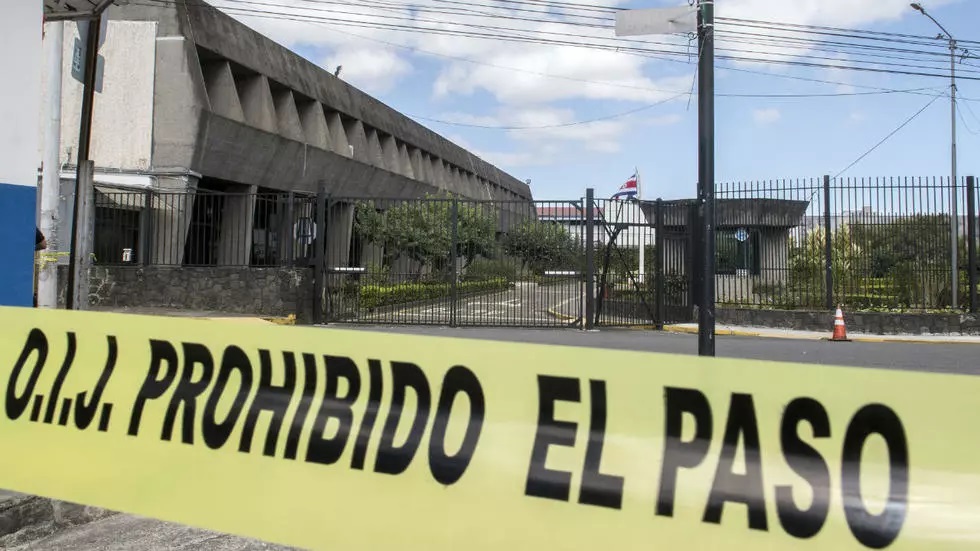RIO DE JANEIRO, BRAZIL – Costa Rican judicial authorities are carrying out 57 raids on Monday, June 14, including an office of the Presidential House and the Ministry of Public Works and Transport (MOPT), for a case of alleged corruption related to public funds for infrastructure.
The director of the Judicial Investigation Agency (OIJ), Walter Espinoza, explained to journalists that the investigation began two years ago and that today’s proceedings aim to obtain evidence and arrest 19 public officials and 14 from 5 private companies that allegedly formed a corruption network.

So far, 16 people have been arrested for this case of corruption in public office, breach of probity, influence peddling, embezzlement, bribery, and possible embezzlement of funds in the construction and maintenance of road infrastructure.
“A group of businesspeople or companies with powerful interests and that also have wide possibilities of action approach public officials, offer them gifts, royalties, affect the probity of the people, and also affect the normality of business and cause the works to become more expensive, which affects the country”, declared Espinoza.
The 57 raids are being carried out in different areas of the country and involve an infrastructure consultancy office located in the Presidential House, several offices in the Ministry of Public Works and Transport, the state-owned National Roads Council, as well as private houses and companies, whose names have not been disclosed.
“The officials received bribes and constant favors that were maintained over time, and that responded to a planned coordination from a criminal point of view that allowed them to obtain money, vehicles, land, trips, and sexual favors”, said the director of the OIJ.
Espinoza indicated that the investigation determined that those involved “had agreed to benefit companies, generate irregular payments and advance payments of invoices”.
The OIJ director explained that this is the first big case to be carried out by a new anti-corruption section of the agency and that the investigation allowed the agents “to enter the intimate sphere of illegal relations, to know the activity of the companies, how they made agreements with officials and how favors were transferred”.

